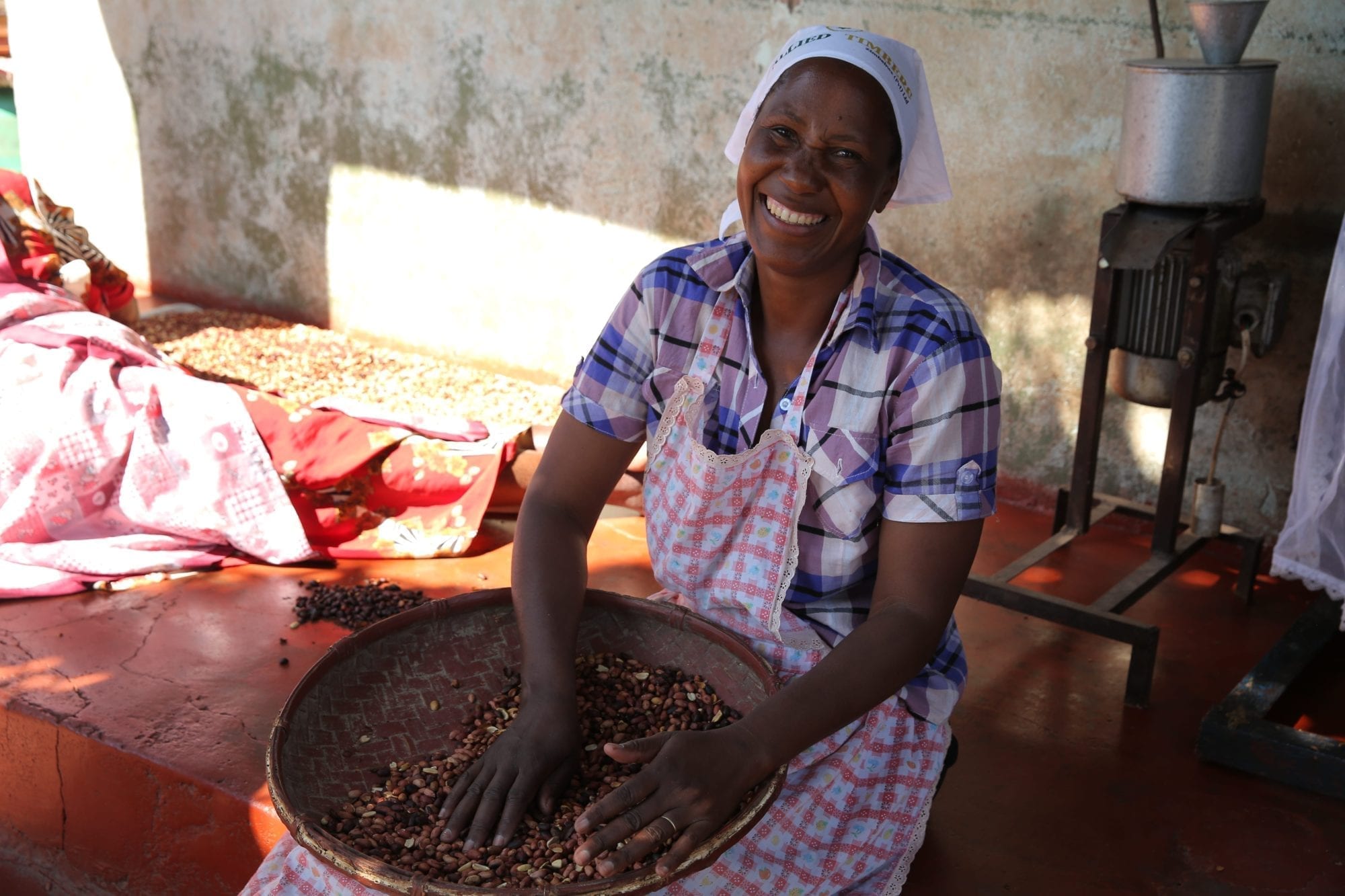
Jan 19, 2017
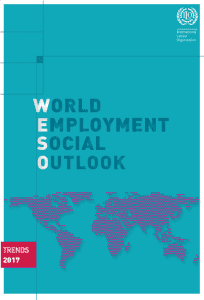
A new International Labor Organization report raises concerns about the ability of the global economy to generate sufficient jobs, improve the quality of employment and ensure that the gains of growth are shared.
“World Employment and Social Outlook: Trends 2017,” finds that disappointing economic growth predicts high unemployment and decent work deficits, including an increase in precarious work. It projects global unemployment to increase by 3.4 million workers in 2017, bringing total global unemployment to more than 201 million people.
In addition, the report’s authors warn that vulnerable employment and working poverty will remain pervasive, and that limited job opportunities and rising social discontent will continue to fuel growing rates of migration. Nearly half of workers in Southern Asia and nearly two-thirds of workers in sub-Saharan Africa were living in extreme or moderate working poverty in 2016.
In other findings:
- Deterioration of labor market conditions will be most severe in emerging countries, while chronic, poor-quality, employment will remain center stage in developing countries.
- The number of workers in vulnerable forms of employment will remain above 42 percent of total employment this year, or 1.4 billion worldwide—including almost four in five workers in developing countries. The two regions most affected will be Southern Asia and sub-Saharan Africa.
- Reductions in working poverty are slowing, endangering the prospects for eradicating poverty as set out in the Sustainable Development Goals.
- Gender disparities in labor market opportunities will persist, with vulnerable forms of employment continuing to be consistently higher for women across Africa, Asia and the Pacific and the Arab States. Meanwhile, the gender gap in hourly wages—which reaches as high as 40 per cent in some developing countries—will persist despite improvements in equal pay legislation.
Recommendations in the report include that measures addressing the causes of stagnation and structural impediments to growth be placed at the forefront of policy agendas, and that policy be focused on how to overcome structural impediments to growth—including inequality.
As the report finds: “The rights to freedom of peaceful assembly and of association are … key to the realization of both democracy and dignity, since they enable people to voice and represent their interests, to hold governments accountable and to empower human agency.”
Read the full report here.
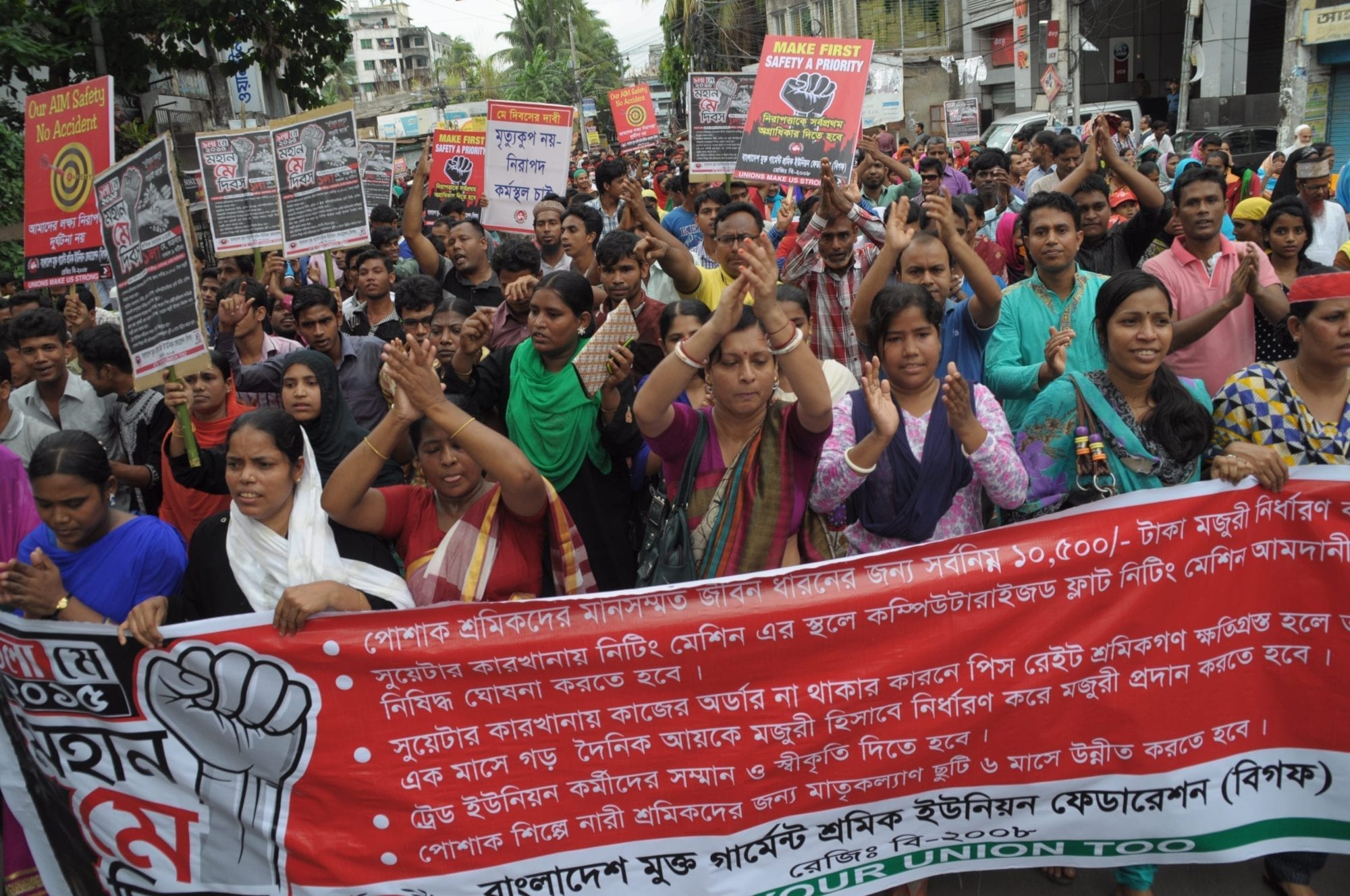
Jan 14, 2017
The Solidarity Center warns that the broad crackdown on garment workers, union leaders and worker rights activists in Bangladesh marks a troubling escalation of efforts to silence garment workers and criminalize their fundamental rights to organize, speak to power and improve their lives and livelihoods.
In a new briefing document, the Solidarity Center outlines the intimidation, arrests and firings that followed a garment worker walk-out in December. It calls on the Bangladesh government and the Bangladesh Garment Manufacturers and Exporters Association to stop the intimidation campaign; respect workers’ legal right to unionize and bargain with employers; negotiate with unions that represent workers’ interests; and raise the garment-sector minimum wage.
Since 2012, the Solidarity Center has recorded hundreds of cases of unfair labor practices, including physical attacks on union leaders, organizers and pro-union workers (and/or their families); kidnappings; threats of death and/or rape; false criminal charges; mass termination; stolen personal property; coercion; harassment; forced signing of “white papers,” that effectively increase production targets; and withholding of access to factory facilities and property (e.g., toilet, elevator).
In 2013, Bangladesh raised the minimum wage for garment workers to $68 a month, the lowest among garment workers in the region. For example, in China it is $265/month; Indonesia, $220; Vietnam, $131; India, $128; and Cambodia, $100. Bangladesh’s capital, Dhaka, is the 71st costliest city in the world, in line with Montreal, Canada.
The Bangladesh garment sector produces clothing for export, primarily to the United States and Europe. It employs nearly 5 million workers, the majority of them women.
You can defend Bangladesh garment organizers and worker-activists as they help workers who toil in unsafe factories for unfair—or unpaid—wages and who, without a union, cannot exercise their rights.
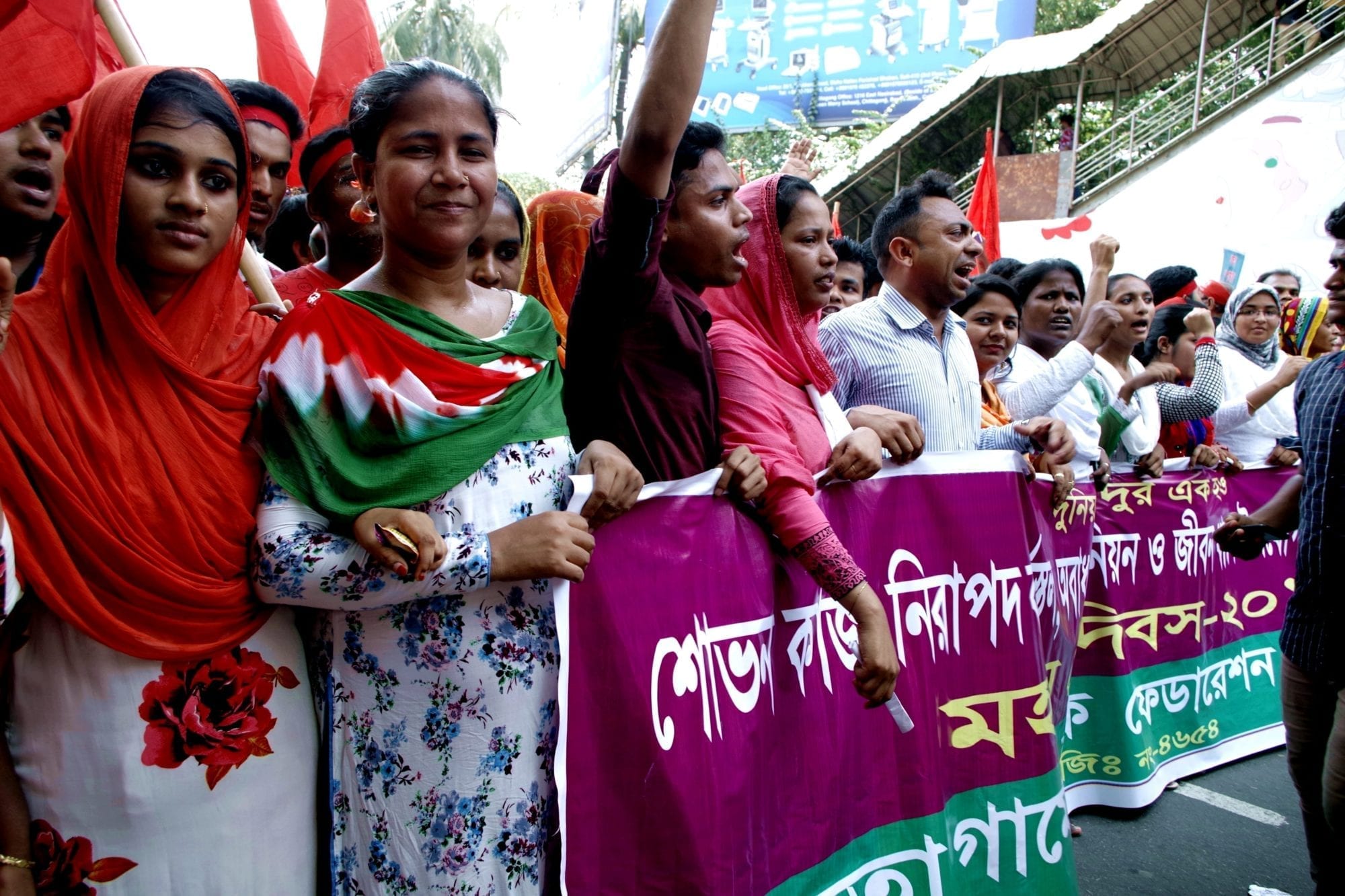
Jan 6, 2017
In mid-December, a strike in Ashulia, an industrial suburb of Bangladesh’s capital, Dhaka, and a ready-made garment sector hub, quickly snowballed into widespread unrest. Garment workers abandoned their factories to call for a living wage in response to ever-rising costs. Mass arrests and firings ensued.
The minimum wage for a Bangladeshi garment worker is $68 a month, an amount last fixed in 2013. When they took to the streets in December, workers were demanding the minimum be increased to $191 a month. Dhaka is the 71st costliest city in the world, in line with Montreal, Canada.
The strike started in Windy Apparels and rapidly spread to other units resulting in 60 factories suspending operations. On December 20, the Bangladesh Garment Manufacturers and Exporters Association (BGMEA) ordered owners to reopen factories and resume operations after a five-day break. However, upon their return, more than 1,600 workers were notified that they had been laid off due to their alleged involvement in the unrest. Labor leaders and activists collectively demanded the reinstatement of all workers but received no response.
Windy Apparels is the same factory that denied a worker sick leave in October despite a very serious illness. She collapsed on the factory floor and died upon reaching the hospital. Her body was left at the factory gate for her husband to retrieve.
Since the factories reopened, union leaders and worker rights advocates have been detained or arrested on charges related to their alleged involvement in the strike. Union activists from different federations and from different areas of Dhaka—and unrelated to the Ashulia unrest—also have been swept up by police. Many have been charged under the Special Powers Act, 1974, which provides police with sweeping power to detain individuals. The act has been used to suppress political opposition and peaceful demonstrations, as well as to retaliate against individuals engaged in personal disputes with people in positions of authority.
Journalists and nongovernmental organizations that focus on worker rights are also being targeted and intimidated by security services. Ekushey Television Journalist Nazmul Huda, was arrested on December 23 and held in police custody for two days−during which time he was allegedly tortured−on charges of inaccurate reporting on the strike.
Last week, police arrived at a community center operated by the Bangladesh Center for Workers Solidarity, an ally of the Solidarity Center, and ordered its closure.
As a result of this and the arrests of union leaders who had no role in the unrest, a chilling effect has taken hold with some other union federations closing offices even though they have not been ordered to.
International worker rights organizations, including the Solidarity Center, are monitoring the situation, and the Solidarity Center continues to track the registration of garment-sector unions in the country.
Donate now!
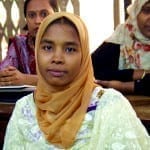
Your tax-deductible contribution to the Bangladesh Worker Rights Defense Fund will support Bangladesh garment organizers and worker-activists as they help workers who toil in unsafe factories for unfair—or unpaid—wages and who, without a union, cannot exercise their rights.
Activities your donation may support include:
• Medical care following an attack
• Safe spaces for organizers and their families who must go into hiding
• Legal assistance
• Transportation
• Awareness-raising activities regarding attacks on worker rights
• Replacement of belongings stolen during assaults
Your receipt for supporting Bangladesh organizers and activists will indicate The Solidarity Center Education Fund. The Fund is a tax-exempt charitable organization under section 501(c)(3) of the Internal Revenue Code. Your contribution is tax deductible to the extent allowed by governing laws. In addition, pursuant to the Internal Revenue Code requirement stated in Internal Revenue Service publication 1771, no goods or services were provided in return for this contribution.
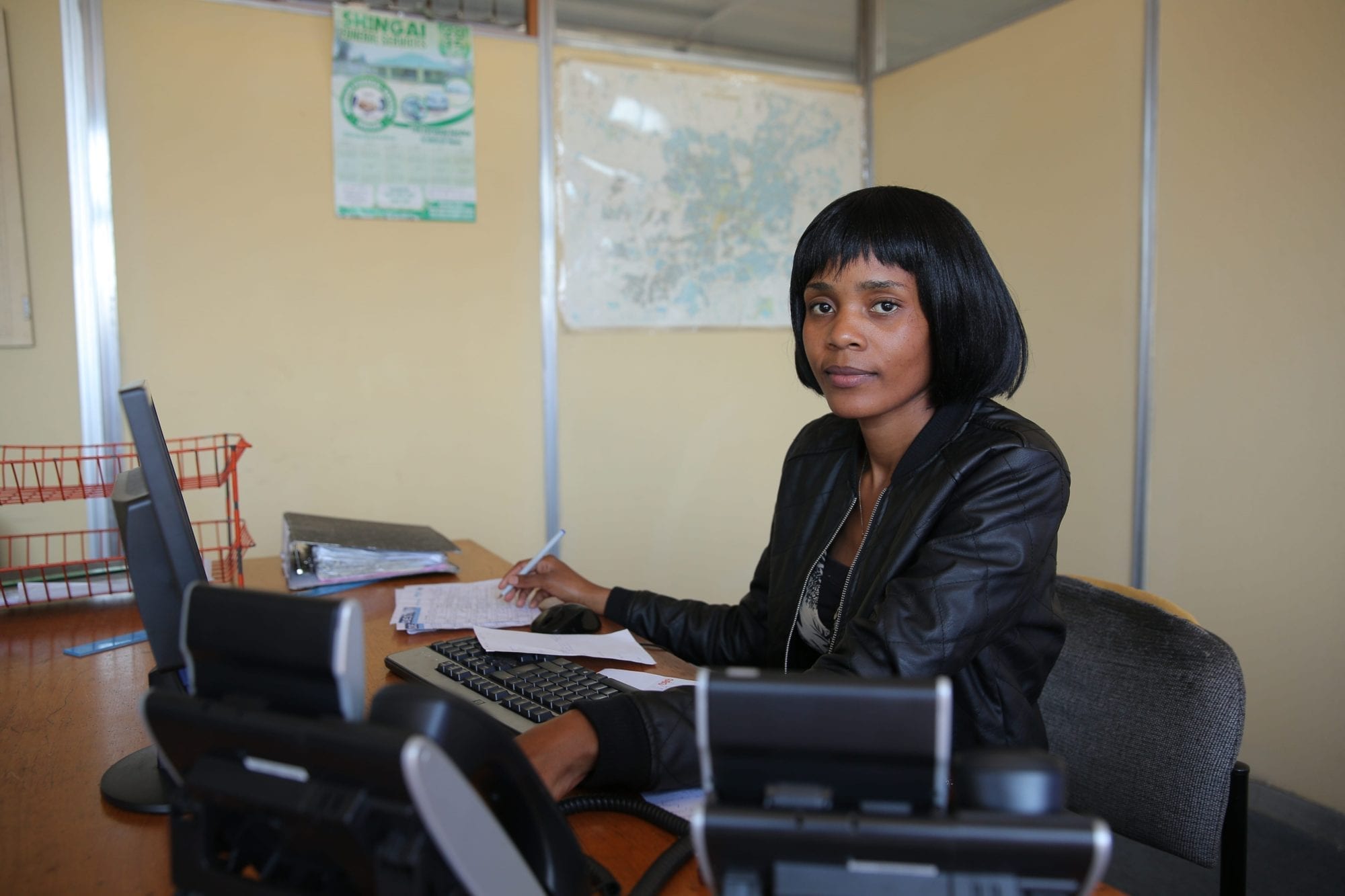
Dec 20, 2016
Workers around the world are losing ground in their paychecks as annual growth in real wages around the world fell to 1.7 percent in 2015, down from 2.5 percent in 2012, according to a new International Labor Organization (ILO) report.
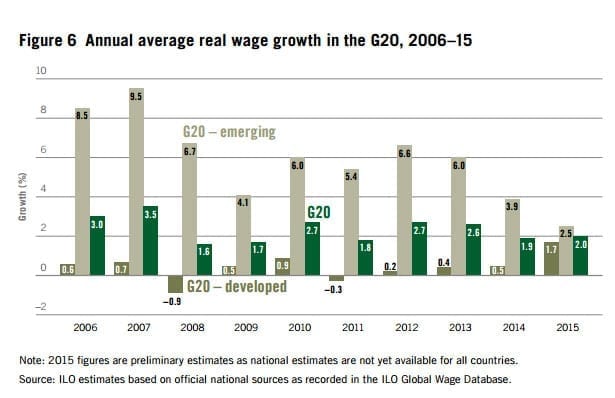
Credit: ILO
Wages have stagnated primarily in developing and emerging economies, especially in Latin America and Eastern Europe, according to the Global Wage Report 2016/17.
Among developing countries—including China, India, Brazil, Nigeria and many other rapidly growing economies—real wage growth in 2012 was around 6.6 percent, but by 2015 it had fallen to just 2.5 percent. Growth in developing countries had fueled economic recovery after the 2008 recession.
Meanwhile, wages in developed countries rose between 2012 and 2015—from 0.2 percent in the wake of the financial crisis, to a 10-year high of 1.7 percent. This uptick does not compensate for slowing wage growth in developing countries, yielding a net decrease worldwide.
To create sustainable wage growth, the ILO calls on countries to enact policy reforms that will benefit working people, such as raising minimum wages and increasing workers’ access to collective bargaining, particularly in global supply chains. The ILO also calls for coordination at the global level to boost wages, reduce inequality and protect working people’s right to freedom of association.
Productivity Outpaces Wages, Workers Miss Out
In the majority of countries, “wage growth in recent decades has lagged behind the growth of labor productivity,” according to the report. This means that even as major economic sectors like agriculture and construction have become more prosperous, workers are getting a smaller and smaller share of that prosperity.
The ILO attributes this divide to the weakening of labor market institutions and pressure from financial markets to direct company profits toward investors rather than workers. As a result, the ILO report says stagnating wages in developing countries are part of a slow but steady decline in working people’s share of wealth in the global economy.
Women have been especially hard hit, earning between 10 percent and 40 percent less than men in hourly wages in many countries. In Azerbaijan and Benin, the gender gap was the highest at nearly 45 percent. Many women work in low-paid, precarious jobs and although they contribute 66 percent of the world’s work, they earn 10 percent of income.
Crucially, the report highlights the frequent correlation between greater wage inequality, greater household income inequality and the declining number of jobs.
Read the full report.
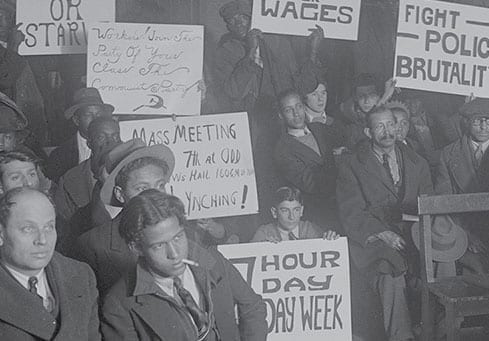
Dec 19, 2016
Members of labor unions and other nongovernmental organizations (NGOs) are invited to contribute to a United Nations report on civil society’s successes over the past decade. The report’s goal is to serve as a reminder of the importance of peace, security, prosperity, social progress and human rights to society.
For his final report to the UN Human Rights Council, Maina Kiai, the Special Rapporteur on the rights to freedom of peaceful assembly and of association, is seeking input describing specific, real-world examples of civil society achievements and successes over the past decade, the context in which these achievements occurred and the impact of these successes or achievements on society at large (at the local, national, and international level). The examples may be included in the report.
More information and a questionnaire–in English, Spanish and French–to facilitate your submission are available here.
Although it is well known that space for civil society globally has shrunk dramatically over the past 10 years, this report will highlight the less publicized but significant achievements civil society has made, despite working against all odds.








